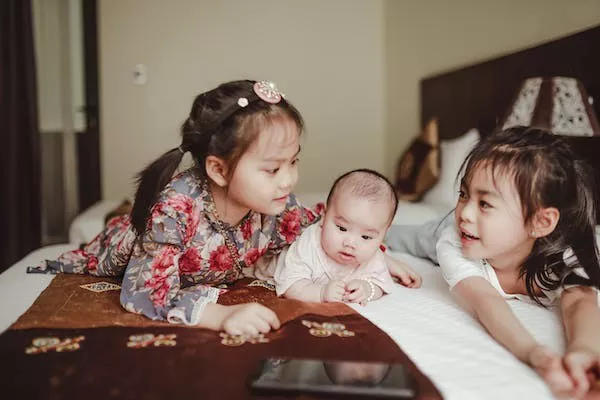Welcoming a newborn into your family is a joyous occasion, and preparing their wardrobe is an essential part of getting ready for their arrival. Before dressing your little one in their new clothes, it’s important to properly wash them to ensure they are clean, soft, and gentle on their delicate skin. In this article, we will guide you through the process of washing newborn clothes for the first time, providing tips and precautions to keep in mind.
Why Should You Wash Newborn Clothes?
Washing newborn clothes before their first wear is crucial for several reasons:
1. Remove Residues: Newborn clothes often contain residual chemicals, dyes, or finishes from the manufacturing process. Washing them helps eliminate these substances, reducing the risk of skin irritation or allergies.
2. Remove Germs and Bacteria: Even brand new clothes can harbor dust, dirt, or microbes from handling, transportation, or storage. Washing newborn clothes helps eliminate any potential germs or bacteria that may have accumulated.
3. Soften Fabrics: Some newborn clothes may feel stiff or have a rough texture due to packaging or storage. Washing them helps soften the fabrics, making them more comfortable against your baby’s sensitive skin.
4. Pre-Shrink Clothes: Certain fabrics, such as cotton, have a tendency to shrink. Washing newborn clothes before the first wear allows them to shrink to their natural size, preventing any unexpected size changes later on.
Steps to Wash Newborn Clothes
Follow these steps to wash your newborn’s clothes for the first time:
1. Read the Labels: Carefully read the care labels on each garment to understand any specific washing instructions or temperature recommendations. Some clothes may require special care, such as gentle washing or avoiding certain detergents.
2. Sort the Clothes: Sort the clothes based on their color and fabric type. Separating whites, light colors, and dark colors prevents color bleeding and ensures the clothes maintain their original appearance. Additionally, separate delicate fabrics from more durable ones to avoid damage.
3. Pre-Treat Stains: Inspect the clothes for any stains or spots. Pre-treat them by gently dabbing the stain with a baby-safe stain remover or a mild detergent. Allow the pre-treatment solution to sit for a few minutes before washing.
4. Choose a Mild Detergent: Select a gentle and fragrance-free detergent specifically formulated for baby clothes. Avoid using strong detergents, fabric softeners, or bleach, as they can be harsh on your baby’s skin and cause irritation.
5. Use a Delicate Wash Cycle: Set your washing machine to a delicate or gentle cycle with cold or lukewarm water. This helps preserve the integrity of the fabrics and prevents excessive wear and tear.
6. Add Extra Rinse: Consider adding an extra rinse cycle to ensure all detergent residues are removed from the clothes. This is particularly important for babies with sensitive skin, as leftover detergent can cause irritation.
7. Drying Newborn Clothes: After washing, carefully remove the clothes from the machine. Shake them gently to minimize wrinkles and reshape them if necessary. Depending on the fabric and care instructions, you can air dry the clothes or use a low-heat dryer. Avoid using high heat, as it can shrink or damage certain fabrics.
Precautions and Tips
While washing newborn clothes, keep the following precautions and tips in mind:
1. Choose Hypoallergenic Products: Opt for hypoallergenic detergents and fabric softeners specifically designed for sensitive skin. These products are less likely to cause irritation or allergic reactions.
2. Wash Separate from Regular Laundry: It’s best to wash newborn clothes separately from your regular laundry to avoid contamination with adult clothing that may have accumulated dirt or chemicals.
3. Wash New and Pre-Owned Clothes Separately: If you’re washing a combination of new and pre-owned clothes, it’s advisable to wash them separately. Pre-owned clothes may require more thorough cleaning to remove any accumulated dirt or allergens.
4. Avoid Harsh Chemicals: Steer clear of using bleach, fabric softeners, or strong detergents on newborn clothes. These can be harsh on delicate skin and cause irritation.
5. Test Detergent on a Small Area: If you’re unsure about a detergent’s compatibility with your baby’s skin, conduct a patch test on a small, inconspicuous area of the fabric. Observe any signs of irritation before washing the entire load.
6. Wash Newborn Clothes Frequently: Newborns tend to go through multiple clothing changes in a day due to diaper leaks, spit-ups, or other accidents. To maintain cleanliness and hygiene, wash their clothes frequently.
Conclusion
Washing newborn clothes before their first wear is an important step to ensure their cleanliness, comfort, and suitability for your little one’s delicate skin. By following the steps outlined above, you can safely wash your newborn’s clothes, removing any potential irritants, germs, or residues. Remember to choose gentle detergents, separate colors and fabrics, and carefully follow the care instructions on each garment. By taking these precautions and incorporating regular washing into your baby’s care routine, you’ll keep their clothes clean, fresh, and ready for them to wear as they embark on their new adventures.


